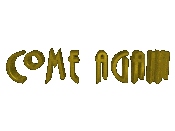I offered to review this book because I have a niece with downs and a few close friends that have downs children. Wincik does a wonderful job making a Case for those with disabilities; downs, autism, and others. For the most part she discusses those with Downs Syndrome. There are so many misconceptions world wide concerning those with disabilities. Wincik shares a brief history, misconceptions and myths concerning Down Syndrome. Stephanie shares an interview that she had with a DS adult and the mother of the adult. You'll find how this DS adult is working as an advocate for those with disabilities. You'll see how they can get an education, hold a job and live a normal life. They can live a full productive life and have gifts to share with the the world. The author also explores eugenics in this book. For more information about this book you may visit Stephanie's web site here.


Whether you are a parent, grandparent, or newly pregnant, you know that most prospective parents hold high expectations for their offspring. Superior intelligence, physical beauty, excellent health, and outstanding athletic ability are just a few of the qualities we dream our children will be born with. Since contemporary society tends to value these qualities above all others, it is only natural for us to hope our children possess the attributes that will provide them with the greatest opportunity for a successful life. But what if your child arrives with a different set of qualities—a combination of traits that the world views as a disability? What if you are told that your child will have Down syndrome? What happens to your dream of producing the perfect child? Nothing need happen to your dream. You only need to alter your definition of perfection.
In this book, we will explore the myth of the perfect child, along with a number of popularly-held yet erroneous beliefs about the negative impact of giving birth to a child with Down syndrome. At the same time, we will begin to develop a new perspective on which characteristics are truly the most desirable in a changing world. As our society becomes increasingly self-absorbed, materialistic, and violent, the new human beings entering the world will need a fresh arsenal of personal qualities if our planet is to survive and thrive.
If we hope to reverse what appears to be a downward spiral for humanity, then kindness, generosity, compassion, gentleness, tolerance, and good humor—attributes, by the way, observed with remarkable consistency in people with Down syndrome—must surpass physical perfection in terms of the enviable traits we dream of seeing in our children. With only a slight shift in our perception, we can clearly see that the extraordinary individuals dismissed for centuries as “disabled,” actually have a vitally important role to play in the world, and indeed may even hold the key to our positive advancement as a human family.

For example, one of the most frequently cited reasons given for the termination of a Down syndrome pregnancy is that the birth of a disabled child would cause undue stress and hardship for the parents. But—and this may come as a surprise to some—first-hand accounts shared by parents of these individuals suggest that this scenario is rarely the case. In fact, the vast majority of families report that living with an individual with Down syndrome is a decidedly positive aspect of their lives.
Ongoing medical problems for the person with Down syndrome is another common concern. Many believe that every individual with Down syndrome is destined for a lifetime of sensory deficits, cardiac disease, dementia, and premature death. However, advances in medicine in recent decades have dramatically improved the health of these individuals throughout their life span, and in turn their life expectancy has significantly increased as well.
From a human rights standpoint, when considering rationalizations for the termination of fetuses with Down syndrome, we must contemplate the possibility that the widespread extermination of an entire class of people essentially for the convenience of those who are considered “normal,” is coming dangerously close to the practice of eugenics. Although eugenics is a broad term that varies widely in its definition, in the narrowest sense of the word, it constitutes the improvement of human beings’ genetic makeup through selective breeding. We will discuss the subject of eugenics as it relates to individuals with Down syndrome later in this book.
When advocating for the rights of disabled persons, it is sometimes easy to slip into emotional descriptions of the positive qualities these individuals possess, particularly those with Down syndrome who tend to display unusually charming personalities. A number of wonderful books, most written by the parents of children with Down syndrome, are available for those who wish to gain insight into the many joyful aspects of living with Down syndrome. For the purposes of this book, however, we will instead focus on the primary reasons for the startlingly high percentage of Down syndrome pregnancies that are currently being terminated, dispel common myths and misconceptions, and offer an alternate perspective on the place individuals with Down syndrome hold in our modern society.
Ongoing medical problems for the person with Down syndrome is another common concern. Many believe that every individual with Down syndrome is destined for a lifetime of sensory deficits, cardiac disease, dementia, and premature death. However, advances in medicine in recent decades have dramatically improved the health of these individuals throughout their life span, and in turn their life expectancy has significantly increased as well.
From a human rights standpoint, when considering rationalizations for the termination of fetuses with Down syndrome, we must contemplate the possibility that the widespread extermination of an entire class of people essentially for the convenience of those who are considered “normal,” is coming dangerously close to the practice of eugenics. Although eugenics is a broad term that varies widely in its definition, in the narrowest sense of the word, it constitutes the improvement of human beings’ genetic makeup through selective breeding. We will discuss the subject of eugenics as it relates to individuals with Down syndrome later in this book.
When advocating for the rights of disabled persons, it is sometimes easy to slip into emotional descriptions of the positive qualities these individuals possess, particularly those with Down syndrome who tend to display unusually charming personalities. A number of wonderful books, most written by the parents of children with Down syndrome, are available for those who wish to gain insight into the many joyful aspects of living with Down syndrome. For the purposes of this book, however, we will instead focus on the primary reasons for the startlingly high percentage of Down syndrome pregnancies that are currently being terminated, dispel common myths and misconceptions, and offer an alternate perspective on the place individuals with Down syndrome hold in our modern society.


Stephanie Wincik is a lifelong resident of Erie County, Pennsylvania. A student of Civil War history, Stephanie is president of the West County Historical Association in Girard, Pennsylvania and the author of six books: Ghosts of Erie County, More Ghosts of Erie County, Heroes in Disguise, Reaching Through the Veil: Ghost Hunting in Erie County, and a time-travel series for children, Northern Lights and The Journey: A Northern Lights Adventure. Stephanie has published articles about Girard history in Pennsylvania Magazine, and writes a column, Local History Corner, for the West County News Journal. She speaks frequently about local history, legends, and ghost stories in Erie County, and often appears as a guest on area television and radio programs.
Stephanie graduated summa cum laude from Penn State University in 1977 with a degree in Nursing, and has worked in the field of developmental disabilities for over twenty- five years. Certified in Developmental Disabilities by the Developmental Disabilities Nurses Association in 2000, Stephanie’s current position is Associate Director of Nursing/Health Services at Erie Homes for Children and Adults in Erie, Pennsylvania. She has recently published a new book about Down syndrome, Making a Case for Life: A New Definition of Perfection.
Visit Stephanie's web site here.
Read guest article by Stephanie: What does Pro-Life Mean anyway? here
A copy of this book was provided for review by Virtual Book tours
Visit Virtual tours here

















































1 comment:
Thanks so much for having me! I appreciate your comments.
Warm regards,
Stephanie Wincik
Post a Comment